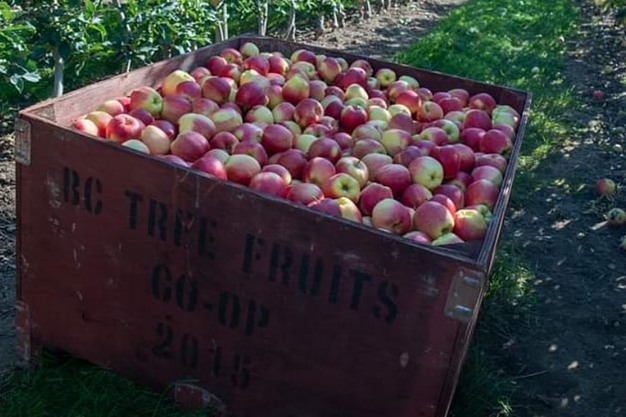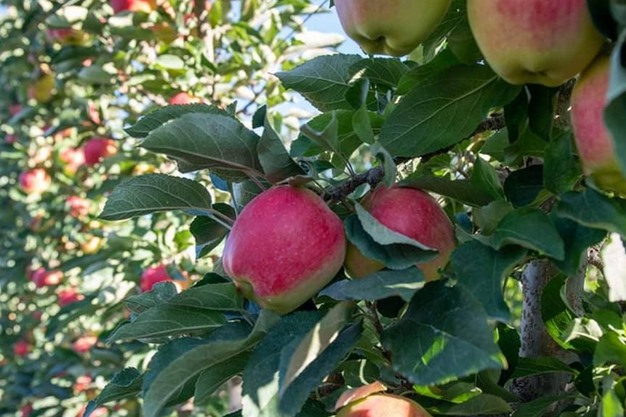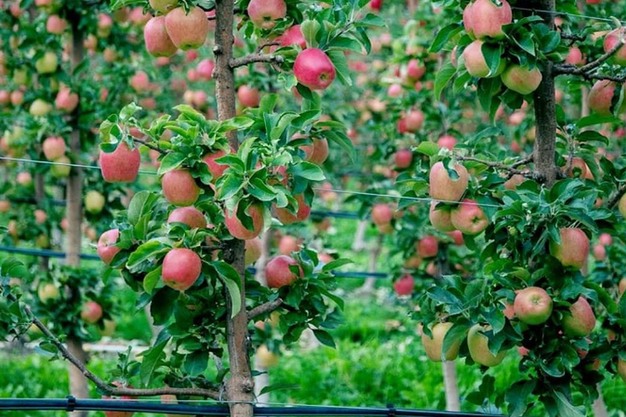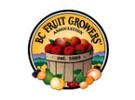It’s time to turn the ship around. That is the sentiment behind a pledge from the BC Fruit Growers’ Association (BCFGA) for new marketing strategies to help B.C.’s struggling apple industry.

This follows developments in the industry in the last five years in B.C. “We’ve had some declining acreage because of poor prices that our growers are receiving,” says Glen Lucas of the BCFGA. Meanwhile, in other apple-growing areas such as the Eastern U.S. and other parts of Canada, acreage is expanding and in Washington state, there’s been some replant on farms and investments in operations.
Upon a closer look, it’s evident that the marketing system in place is allowing the undercutting of B.C. apple growers and shippers in the marketplace. “Orderly marketing will overcome that. It’s not a guarantee but it’s something that we’re hoping will allow us to address the underperformance in the market that we’re seeing,” Lucas says.
Comparison to Washington
Even though the sizes of B.C. and Washington State aren’t that far off, the latter has much more sizeable apple production. “They set the price so at a minimum we should be getting the same price as Washington State and it appears that we’re selling at a substantial discount,” he says. That’s also happening in B.C. where its home market is selling at a discount compared to Washington State apples coming in. “That makes no sense--if anything we should be getting homegrown premium pricing.”

Part of the problem is the nature of Canada’s largely consolidated retail market compared to the U.S. retail scene, making it less competitive amongst retailers. B.C. apple sales aren’t also as coordinated--another area where more orderly marketing would help. “It would allow us to coordinate that and know better what the prices are, what the volumes are, what the flow is so that people wouldn’t be undermining each other in the marketplace unnecessarily,” says Lucas. “When we coordinate our supply better, then prices will be equivalent to Washington state and we hope to get a homegrown premium.” He also adds that there are some varieties grown in B.C., such as Ambrosia, which aren’t grown as much in Washington state similar to how Honeycrisp thrives in the eastern part of the country--again, lending itself to that premium-priced homegrown fruit idea.
Then there are promotions. Right now packers in B.C. often prefer to promote their label and don’t have an umbrella “B.C.-grown” type label unlike how Washington State fruit has. “With the emergence of many more packers, it just makes sense that we create that umbrella and create value. Orderly marketing would come up with a promotion strategy and allow dollars to be collected from growers and put into that,” Lucas says.
That can be tricky though, getting growers to commit dollars given today’s economic picture. However, Lucas says that the Washington State Apple Commission’s research shows there’s a 13.5:1 benefit. “So why wouldn’t you put a dollar in if you’re going to get $13.5 back?” he says. The association is also hopeful for support from the B.C. government to get the initiative off the ground.
Watchful of quality
Also part of this strategy are quality standards. “Some packers are left on their own and we’ve seen some erosion in quality standards. It’s not prevalent but it’s the start of a trend that will lower quality products into premium markets and that just wrecks that market,” says Lucas. “We want to protect those quality standards.”

Across the country, Ontario has the Ontario Apple Growers as a potential benchmark model. “The retailers buy Ontario first and when that runs out, they go elsewhere,” Lucas says. Quebec also has something similar where a minimum price is set and collects data and more. “It seems like it’s more common than uncommon for apple-producing regions to have this structure.”
However, none of this is set in stone yet. “We’re engaging our growers and packers and provincial government and going a step at a time to make sure we’re reflecting the discussions happening. We’re doing our very best to get a common direction for the industry,” says Lucas. “It’s the future of the industry. Are we going to return to a growth pattern and have stability or are we going to continue to destabilize the industry and have shrinkage? We’ve come to a point where we need to make some decisions. It will take some individual freedom away as packers but they’ll be stronger as a group.”
 For more information:
For more information:
Glen Lucas
BC Fruit Growers’ Association
Tel: +1 (250) 762-5226
[email protected]
https://www.bcfga.com
